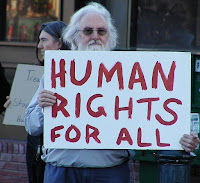Lehi, UT, July 6, 2010 — On the heels of the release of bestselling author Thomas E. Woods' new book, Nullification: How to Resist Federal Tyranny in the 21st Century, a local political activist has launched a project to put the book into the hands of every state legislator in Utah. In his latest work, Woods, a senior fellow at the Ludwig von Mises Institute, explains the history, purpose, and effective use of state nullification as a check on federal laws and programs that exceed constitutional authority. On the announcement of the Utah Nullification project, Woods commented: "Thomas Jefferson warned that if the federal government is allowed to hold a monopoly on determining the extent of its own powers, we have no right to be surprised when it keeps discovering new ones. History clearly shows that it has just done that, and despite their protests, resolutions, and lawsuits, the states have repeatedly ceded their sovereignty to an ever-expanding accumulation of federal powe...














